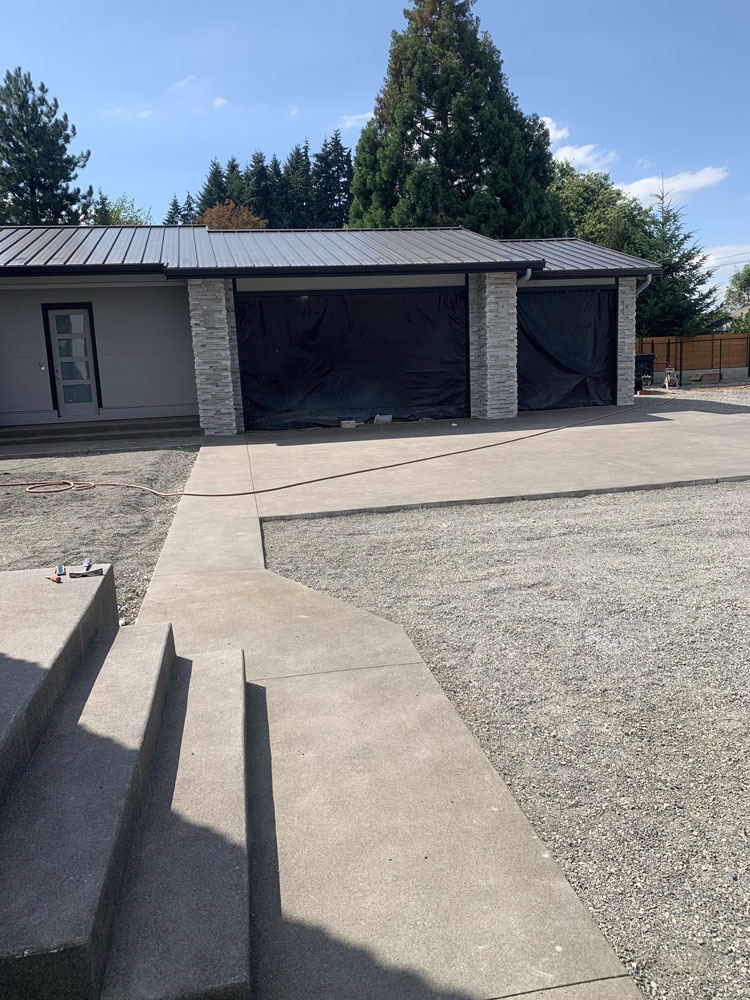In the world of construction and home improvement, payment methods can often be a source of confusion for homeowners. When hiring a masonry contractor, understanding your payment options is crucial not only for budget management but also for ensuring a smooth project experience. This article aims to provide comprehensive insights into various payment methods available when working with masonry contractors.
Understanding Different Payment Options with Your Mason Contractor
When you Click here for more embark on a masonry project, whether it’s a stunning brick pathway or an elegant stone fireplace, you’ll want to ensure that you are well-informed about the different payment options available to you. Each method has its advantages and disadvantages, and it's imperative to choose one that aligns with both your financial situation and the contractor's policies.
1. Cash Payments: The Traditional Choice
Cash payments continue to be a popular choice for many homeowners when working with their masonry contractors. Paying in cash can lead to:
- Immediate Transactions: You hand over the cash upon completion, ensuring no lingering debts. Potential Discounts: Some contractors may offer discounts for cash payments since it eliminates credit card fees.
Advantages of Cash Payments
Simplicity: No need for bank transfers or checks. No Interest Rates: Paying upfront eliminates any interest costs associated with loans or financing.Disadvantages of Cash Payments
Risk of Loss: Carrying large amounts of cash poses a security risk. Lack of Documentation: Always ensure you receive a receipt as proof of payment.2. Checks: A Secure Alternative
Checks offer another viable option when paying your masonry contractor. They provide more security than cash while still being straightforward.
Advantages of Check Payments
Trackable Transactions: Checks create a paper trail that can be helpful for your records. Security Features: Modern checks come equipped with various security features to prevent fraud.Disadvantages of Check Payments
Delayed Processing: It can take several days for checks to clear, leading to potential delays in project completion. Requires Sufficient Funds: Ensure your account has enough funds to avoid bounced checks.3. Credit Cards: Convenience Meets Flexibility
Using credit cards is increasingly common in home improvement projects due to their convenience and flexibility.
Advantages of Credit Card Payments
Rewards Programs: Many credit cards offer rewards points that can be redeemed later. Built-in Protection: Credit cards often have consumer protection policies in place if something goes wrong with the transaction.Disadvantages of Credit Card Payments
Interest Rates: Failing to pay off the balance promptly can incur high-interest charges. Fees for Contractors: Some masonry contractors may charge fees for accepting credit card payments.4. Financing Options Through Contractors
Some masonry contractors offer financing plans directly through their services, allowing homeowners to pay in installments over time.
Advantages of Contractor Financing
Flexibility in Payments: Homeowners can spread out their payments, making budgeting easier. Tailored Plans: Many contractors will work with you to create personalized financing plans based on your needs.Disadvantages of Contractor Financing
Potentially High-Interest Rates: Always read the terms carefully; some plans may carry high-interest rates. Debt Risk: Spreading payments over time could lead to overextending yourself financially if not managed wisely.5. Home Equity Loans and Lines of Credit
For larger projects, some homeowners consider using home equity loans or lines of credit (HELOCs) as a funding source for their masonry work.
Advantages of Home Equity Financing
Lower Interest Rates: Home equity loans typically have lower interest rates compared to personal loans or credit cards. Large Loan Amounts Available: Ideal for expansive projects requiring significant investment.Disadvantages of Home Equity Financing
Risk Involved: Defaulting could put your home at risk since it serves as collateral. Lengthy Approval Process: Obtaining these loans may require extensive paperwork and time before approval.6. Payment Terms and Contracts
Regardless of which payment method you choose, it's vital that all terms are clearly outlined in your contract with the masonry contractor.
Key Elements To Look For In Contracts
- Clear breakdowns of payment schedules Detailed descriptions of work being performed Policies regarding additional costs or changes
FAQ Section
1) What is the most common payment method used by masonry contractors?
Most masonry contractors prefer payments via checks due to their security features and traceable nature; however, cash remains popular among clients seeking immediate transactions without additional fees.
2) Do I have to pay upfront before beginning my project?
While it’s standard practice for contractors to request an upfront deposit (usually 10-30% depending on the project's size), fully paying upfront is not recommended unless specified by contract due to risks involved.
3) Can I negotiate payment terms with my masonry contractor?
Absolutely! Many contractors are open to negotiating terms based on mutual agreement—just ensure everything is documented in writing!

4) Are there any hidden fees associated with using credit cards?
Yes, some contractors might charge service fees when accepting credit card payments; make sure you clarify this beforehand!
5) How do I handle disputes over payment or service quality?
Maintaining clear communication throughout the process is critical; if issues arise post-payment, consult your contract provisions regarding dispute resolution strategies first before escalating further!
Conclusion
Understanding different payment options with your mason contractor doesn’t have to feel overwhelming! By weighing each method's pros and cons alongside your unique financial circumstances, you'll position yourself better throughout the project while ensuring transparency between both parties involved! Whether opting for cash transactions or exploring other exciting financing avenues—what matters most is finding what works best specifically tailored toward YOUR needs!
This thorough exploration empowers readers with knowledge about navigating financial responsibilities related directly back toward investing time/money into beautiful custom homes—ultimately enhancing not just property value but enjoyment derived from living within them too!